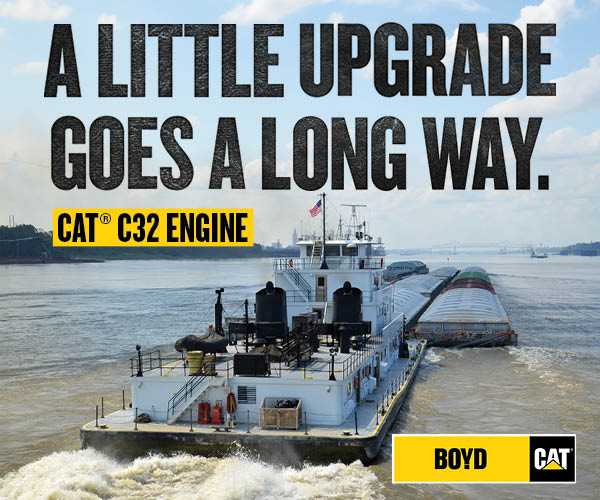Balancing Policy Objectives For The EPA Clean Ports Program
By Jim Kearns and Chris Ulfers
What happens when the policy objectives of federal programs collide? This is being played out in real time as the U.S. Environmental Protection Agency (EPA) carries out its Clean Ports Program, established by the Inflation Reduction Act of 2022 with funding of almost $3 billion for zero-emission port equipment and infrastructure to reduce air pollutants and greenhouse gases at U.S. ports. At the same time, the program requires compliance with the Build America, Buy America requirements that have come to be known simply as “BABA.”

Although the period for submitting applications for grants under the program closed on May 28, with awards expected to be announced in December, questions remain as to how grant recipients will be able to meet the BABA requirements.
The BABA requirements come from Section 70914(a) of the 2021 Infrastructure Investment and Jobs Act (IIJA). This provision requires that no infrastructure project may be federally funded after May 14, 2022, unless “all of the iron, steel, manufactured products and construction materials used in the project are produced in the United States.” One of the policy objectives of the BABA requirements is to give US manufacturers an incentive to invest in domestic production capacity for the products used in federally funded projects.
Even assuming that BABA will ultimately have its intended effect, it creates a significant challenge for grant programs like those of EPA when the equipment that is currently available to meet the objectives of a grant program—one such objective being cleaner air at ports—does not meet BABA requirements. As a result, IIJA authorizes federal agencies to grant waivers of the BABA requirements under criteria set forth in the statute and in guidance provided by the Office of Management and Budget.

In the case of EPA’s Clean Ports Program, those waivers can be project-specific or of general applicability in the public interest. To expedite the adoption of zero-emission mobile port equipment with funding from the Clean Ports Program, on May 15, 2024, EPA issued a general applicability public-interest waiver of the BABA requirements for certain kinds of such equipment for limited periods of time.
Full details of the waiver can be found on EPA’s website, but the gist of the waiver is as follows. The BABA regulations applicable to all federal agencies require, for manufactured products, that the product be manufactured in the United States and that the cost of the product’s components that are produced in the United States be greater than 55 percent of the total cost of all of the product’s components. Under EPA’s BABA waiver for the Clean Ports Program, the 55 percent domestic content requirement is waived for certain types of zero-emission mobile port equipment, including certain cranes, cargo handling equipment, drayage and yard trucks, switch locomotives, push boats and ferries.
The waiver applies to expenditures for which 1) the contracted order date for the equipment is no later than December 31, 2027, 2) the contracted delivery date is no later than December 31, 2028, and 3) the equipment is actually delivered no later than July 1, 2029. Different content waiver provisions and timelines apply to yard trucks and ship-to-shore cranes based on EPA’s estimate of when such equipment would likely begin to meet the BABA content requirements.
The waiver’s deadline for when equipment must be delivered creates the risk for a grant recipient that, even if it contracted for equipment that is BABA noncompliant in a way that meets the first two criteria, it could ultimately lose the protection of the waiver due to a delay in delivery for causes beyond the recipient’s control. This is hardly a far-fetched scenario in light of recent supply chain challenges.
To address this concern, EPA says in its waiver announcement that it “may consider” extending the delivery date requirement beyond July 1, 2029, on an award-by-award basis if the delivery is delayed due to “unanticipated supply chain issues or other factors.” EPA claims that this approach is needed to achieve a “balance between the Clean Ports Program’s priorities of expediting health and environmental outcomes for near-port communities and expanding the supply base and continuing increased use of zero-emission port equipment.”
Other BABA waivers are also available to the recipients of Clean Ports Program funding, such as the supplemental “de minimis” waiver in which BABA compliance is waived on 15 percent of the material costs associated with the purchase of certain zero-emission mobile port equipment. Another existing EPA waiver allows up to 5 percent of a project’s total cost (versus equipment cost) to be used on items that are not BABA compliant, which remains applicable to the Clean Ports Program. There is also an EPA waiver of BABA requirements for small projects of less than $250,000.
About the authors:
Jim Kearns is special counsel in Jones Walker’s Maritime Practice Group, where he focuses on maritime transactions. In his more than 30 years of practice, Kearns has represented owners, operators, financial institutions (as both lessors and lenders) and end users in the purchase, construction and financing of vessels engaged in both the foreign and coastwise trades of the United States, including compliance with the requirements of the Jones Act for the ownership, chartering and transfer of vessels.
Christopher Ulfers is a partner in Jones Walker’s Maritime Practice Group and is also affiliated with the Corporate and Litigation practice groups. Ulfers focuses his practice on maritime law and regularly advises and represents clients in maritime, regulatory and commercial matters.



